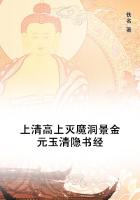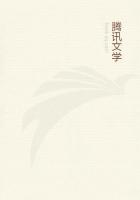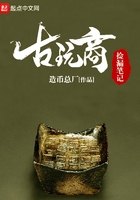He drove a stake to mark the spot where the killdeer hen brooded in the corn field, so that he would not drive Nancy over the nest. When he closed the bars at the end of the lane, he always was careful to leave the third one down, for there was a chippy brooding in the opening where it fitted when closed. Alders and sweetbriers grew in his fence corners undisturbed that spring if he discovered that they sheltered an anxious-eyed little mother.
He left a square yard of clover unmowed, because it seemed to him that the lark, singing nearer the Throne than any other bird, was picking up stray notes dropped by the Invisible Choir, and with unequalled purity and tenderness, sending them ringing down to his brooding mate, whose home and happiness would be despoiled by the reaping of that spot of green. He delayed burning the brush-heap from the spring pruning, back of the orchard, until fall, when he found it housed a pair of fine thrushes; for the song of the thrush delighted him almost as much as that of the lark. He left a hollow limb on the old red pearmain apple-tree, because when he came to cut it there was a pair of bluebirds twittering around, frantic with anxiety.
His pockets were bulgy with wheat and crumbs, and his heart was big with happiness. It was the golden springtime of his later life. The sky never had seemed so blue, or the earth so beautiful. The Cardinal had opened the fountains of his soul; life took on a new colour and joy; while every work of God manifested a fresh and heretofore unappreciated loveliness. His very muscles seemed to relax, and new strength arose to meet the demands of his uplifted spirit. He had not finished his day's work with such ease and pleasure in years; and he could see the influence of his rejuvenation in Maria. She was flitting around her house with broken snatches of song, even sweeter to Abram's ears than the notes of the birds; and in recent days he had noticed that she dressed particularly for her afternoon's sewing, putting on her Sunday lace collar and a white apron. He immediately went to town and bought her a finer collar than she ever had owned in her life.
Then he hunted a sign painter, and came home bearing a number of pine boards on which gleamed in big, shiny black letters:
------------------------
NO HUNTING ALLOWED
ON THIS FARM
------------------------
He seemed slightly embarrassed when he showed them to Maria. "I feel a little mite onfriendly, putting up signs like that 'fore my neighbours," he admitted, "but the fact is, it ain't the neighbours so much as it's boys that need raising, an' them town creatures who call themselves sportsmen, an' kill a hummin'-bird to see if they can hit it. Time was when trees an' underbrush were full o' birds an' squirrels, any amount o' rabbits, an' the fish fairly crowdin' in the river. I used to kill all the quail an' wild turkeys about here a body needed to make an appetizing change, It was always my plan to take a little an' leave a little. But jest look at it now. Surprise o' my life if I get a two-pound bass. Wild turkey gobblin' would scare me most out of my senses, an', as for the birds, there are jest about a fourth what there used to be, an' the crops eaten to pay for it. I'd do all I'm tryin' to for any bird, because of its song an' colour, an' pretty teeterin' ways, but I ain't so slow but I see I'm paid in what they do for me. Up go these signs, an' it won't be a happy day for anybody I catch trespassin' on my birds."
Maria studied the signs meditatively. "You shouldn't be forced to put 'em up," she said conclusively. "If it's been decided 'at it's good for 'em to be here, an' laws made to protect 'em, people ought to act with some sense, an' leave them alone. I never was so int'rested in the birds in all my life; an' I'll jest do a little lookin' out myself. If you hear a spang o' the dinner bell when you're out in the field, you'll know it means there's some one sneakin' 'round with a gun."
Abram caught Maria, and planted a resounding smack on her cheek, where the roses of girlhood yet bloomed for him. Then he filled his pockets with crumbs and grain, and strolled to the river to set the Cardinal's table. He could hear the sharp incisive "Chip!" and the tender mellow love-notes as he left the barn; and all the way to the sumac they rang in his ears.
The Cardinal met him at the corner of the field, and hopped over bushes and the fence only a few yards from him. When Abram had scattered his store on the rail, the bird came tipping and tilting, daintily caught up a crumb, and carried it to the sumac.
His mate was pleased to take it; and he carried her one morsel after another until she refused to open her beak for more. He made a light supper himself; and then swinging on the grape-vine, he closed the day with an hour of music. He repeatedly turned a bright questioning eye toward Abram, but he never for a moment lost sight of the nest and the plump gray figure of his little mate. As she brooded over her eggs, he brooded over her; and that she might realize the depth and constancy of his devotion, he told her repeatedly, with every tender inflection he could throw into his tones, that she was "So dear! So dear!"
The Cardinal had not known that the coming of the mate he so coveted would fill his life with such unceasing gladness, and yet, on the very day that happiness seemed at fullest measure, there was trouble in the sumac. He had overstayed his time, chasing a fat moth he particularly wanted for his mate, and she, growing thirsty past endurance, left the nest and went to the river. Seeing her there, he made all possible haste to take his turn at brooding, so he arrived just in time to see a pilfering red squirrel starting away with an egg.
With a vicious scream the Cardinal struck him full force. His rush of rage cost the squirrel an eye; but it lost the father a birdling, for the squirrel dropped the egg outside the nest. The Cardinal mournfully carried away the tell-tale bits of shell, so that any one seeing them would not look up and discover his treasures. That left three eggs; and the brooding bird mourned over the lost one so pitifully that the Cardinal perched close to the nest the remainder of the day, and whispered over and over for her comfort that she was "So dear! So dear!"















